S3 > com/org | (HTTPS) 78.157.41.90 : 18:13:48
من نتونستم با کار ارتباط برقرار کنم. به نظرم نمایش بیش از حد گنگ بود شاید دلیل این حس اینبود که یکی از شخصیتها بایستی زن باشه در بین نمایش همچین حسی داشتم و یکی از نقدها هم همین نظر رو داشت. البته با نظر دوستان موافقم که نمایش بسیار خلاقانه بود
سیدرامین هاشمی (ramin2364)
تیوال این کاربر
پروفایل
دنبال
از ۲۴ مرداد ۱۳۹۰
بی شک زن بود...
۲۰ آبان ۱۳۹۰
دوستدارم
پاسخ
http://www.andrewdawson.info/pandora_88.html
Trapped in a box, Wolfgang Hoffmann and Sven Till are inspired by the limitations of their confine and create a stunning piece ... دیدن ادامه ›› of visual theatre.
The magic of Pandora's box
The show starts in near darkness; two men enter an empty space, move around a little and then find themselves standing together in a Perspex box, perhaps 5ft wide by 10ft high, at the centre of the stage. Apparently they cannot leave it and must co-exist there as best they can. Yet, from this simple beginning, Wolfgang Hoffmann and Sven Till, of the Fabrik Company of Potsdam, create a 65-minute piece of movement theatre (fabulously well directed by Andrew Dawson, with music by Matthias Herrmann and laced with occasional gruff lines of dialogue) that rises to breathtaking heights of intensity. It has that rare quality of seeming to shift on its axis and take with it our whole perception of an idea or an issue that has been haunting our society for decades - in this case, the idea of maleness or masculinity, of how men relate to each other and how they form an identity. At first, the show seems like a fairly conventional resume of thoughts and body-language about masculine behaviour, although some of the visual images they create are stunning. The two men tussle, play, edge around one another, try to get on with their work, ignore one another, and get involved in a long game of imitating animals and objects. However, as the show moves into its second half, it makes a huge leap in dramatic intensity. The men begin to rebel against their imprisonment, to hurl their whole bodies against the walls in a desperate display of frustrated human strength and energy, to support one another in great straining climbs towards freedom, and, in their desperation, to reach new levels of emotional and physical closeness, of an almost sexual tenderness. These are images of what men can do with and for each other, in their strength, their playfulness, their courage and the sheer beauty of their musculature and their bodies, that seem to me to break new ground in the gender debate, beyond simple polarities of hardness and softness, machismo and compassion. And when, at the end, the chance of freedom finally comes, it's with a sense of threat, exhilaration and beauty that is simply unforgettable
Trapped in a box, Wolfgang Hoffmann and Sven Till are inspired by the limitations of their confine and create a stunning piece ... دیدن ادامه ›› of visual theatre.
The magic of Pandora's box
The show starts in near darkness; two men enter an empty space, move around a little and then find themselves standing together in a Perspex box, perhaps 5ft wide by 10ft high, at the centre of the stage. Apparently they cannot leave it and must co-exist there as best they can. Yet, from this simple beginning, Wolfgang Hoffmann and Sven Till, of the Fabrik Company of Potsdam, create a 65-minute piece of movement theatre (fabulously well directed by Andrew Dawson, with music by Matthias Herrmann and laced with occasional gruff lines of dialogue) that rises to breathtaking heights of intensity. It has that rare quality of seeming to shift on its axis and take with it our whole perception of an idea or an issue that has been haunting our society for decades - in this case, the idea of maleness or masculinity, of how men relate to each other and how they form an identity. At first, the show seems like a fairly conventional resume of thoughts and body-language about masculine behaviour, although some of the visual images they create are stunning. The two men tussle, play, edge around one another, try to get on with their work, ignore one another, and get involved in a long game of imitating animals and objects. However, as the show moves into its second half, it makes a huge leap in dramatic intensity. The men begin to rebel against their imprisonment, to hurl their whole bodies against the walls in a desperate display of frustrated human strength and energy, to support one another in great straining climbs towards freedom, and, in their desperation, to reach new levels of emotional and physical closeness, of an almost sexual tenderness. These are images of what men can do with and for each other, in their strength, their playfulness, their courage and the sheer beauty of their musculature and their bodies, that seem to me to break new ground in the gender debate, beyond simple polarities of hardness and softness, machismo and compassion. And when, at the end, the chance of freedom finally comes, it's with a sense of threat, exhilaration and beauty that is simply unforgettable
برای بهره بهتر از تیوال لطفا عضو یا وارد شوید
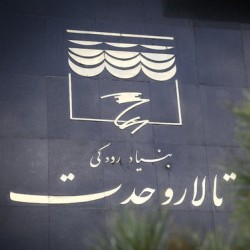 تالار وحدت
تالار وحدت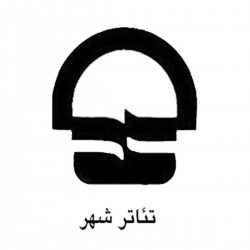 تئاترشهر تهران
تئاترشهر تهران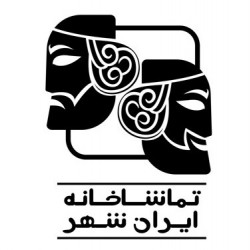 تماشاخانه ایرانشهر
تماشاخانه ایرانشهر مجموعه تئاتر لبخند
مجموعه تئاتر لبخند عمارت هما
عمارت هما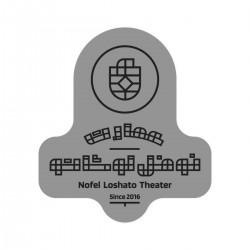 عمارت نوفل لوشاتو
عمارت نوفل لوشاتو تئاتر هامون
تئاتر هامون تالار مولوی
تالار مولوی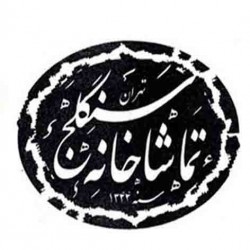 تماشاخانه سنگلج
تماشاخانه سنگلج تماشاخانه هیلاج
تماشاخانه هیلاج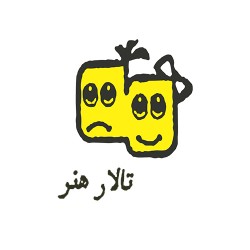 تالار هنر
تالار هنر خانه هنرمندان ایران
خانه هنرمندان ایران بلک باکس ایرانمال
بلک باکس ایرانمال خانه نمایش دا
خانه نمایش دا تماشاخانه طهران
تماشاخانه طهران
